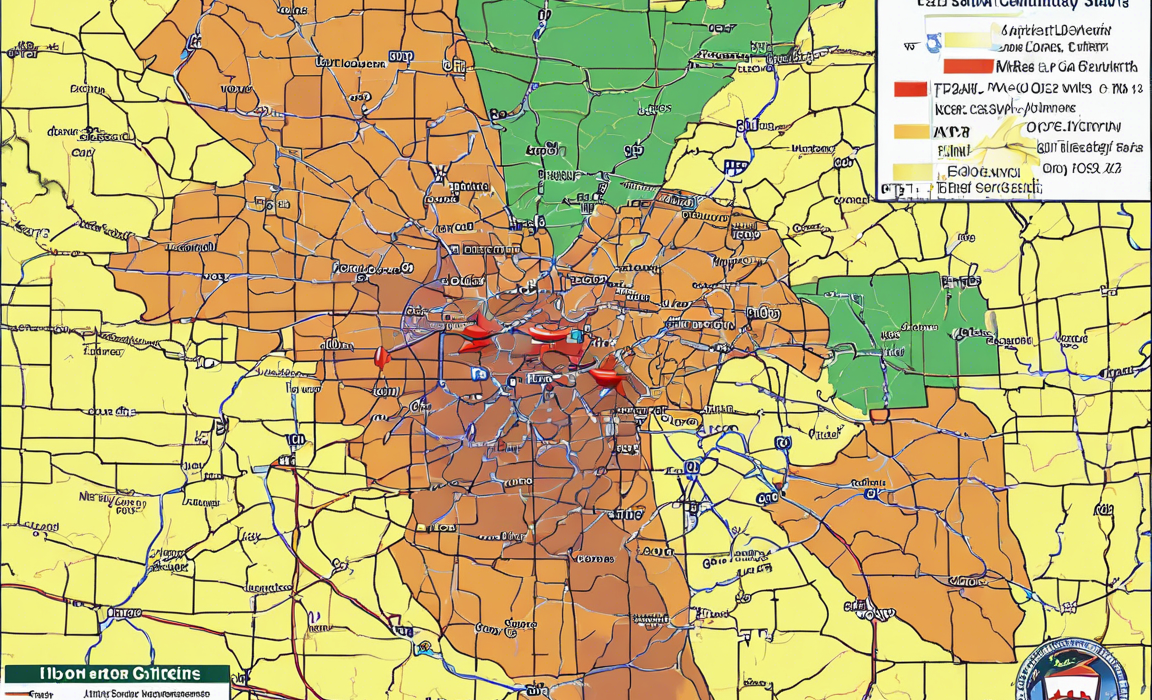Introduction:
Living in Houston can be a rewarding experience, with its vibrant culture, diverse community, and booming economy. However, one of the biggest challenges that residents face in this dynamic city is severe weather, particularly when it comes to storms. Houston is no stranger to intense storms that can lead to flooding, property damage, and even loss of life. It is crucial for residents to be well-informed and prepared to navigate these risks effectively.
Understanding the Risk Factors:
Houston’s unique geography makes it particularly susceptible to severe storms. Situated near the Gulf of Mexico, the city is prone to hurricanes and tropical storms, which can bring heavy rainfall and powerful winds. Additionally, Houston’s flat terrain and inadequate drainage systems can lead to flooding, especially in low-lying areas.
Preparedness and Planning:
To minimize the impact of severe storms, residents should have a comprehensive emergency plan in place. This plan should include preparing an emergency kit with essential supplies, creating a communication strategy with family members, and staying informed about weather updates. It is also important to know your evacuation routes and have a designated meeting place in case of separation.
Mitigating Risks and Taking Action:
In the event of a severe storm, it is crucial to take immediate action to ensure your safety and the safety of your loved ones. Stay indoors and away from windows, listen to local authorities, and be prepared to evacuate if necessary. If flooding occurs, avoid driving or walking through flooded areas, as it only takes a few inches of water to sweep away a vehicle or a person.
Recovery and Resilience:
After a severe storm has passed, the recovery process can be daunting. It is important to assess any damage to your property and take necessary steps to address it. This may involve contacting your insurance provider, hiring professional cleanup services, and documenting the damage for insurance purposes. Remember to prioritize your safety and well-being during the recovery process.
Community Resources and Support:
Houston is home to a variety of community resources and support services that can assist residents in navigating the challenges of severe storms. Organizations like the Red Cross, local shelters, and emergency management agencies offer valuable assistance during times of crisis. Additionally, reaching out to neighbors and community members for support can help foster a sense of solidarity and resilience.
Conclusion:
Severe storms are an inevitable part of life in Houston, but with the right preparation and planning, residents can effectively navigate these risks and protect themselves and their families. By staying informed, creating an emergency plan, and accessing community resources, Houstonians can build resilience in the face of adversity and emerge stronger after the storm.
Frequently Asked Questions (FAQs)
1. What are some essential items to include in an emergency kit for severe storms?
– Water and non-perishable food
– Flashlight and extra batteries
– First aid kit
– Whistle
– Cash
– Personal hygiene items
2. How can I stay informed about severe weather updates in Houston?
– Sign up for local weather alerts on your phone
– Follow local news stations and meteorologists on social media
– Invest in a weather radio for real-time updates
3. What should I do if I need to evacuate during a severe storm?
– Follow evacuation orders from local authorities
– Pack essential items and important documents
– Inform family members of your evacuation plan
– Take your pets with you, if possible
4. How can I protect my property from flooding during a severe storm?
– Install flood barriers and seals for doors and windows
– Elevate electrical outlets and appliances
– Clear gutters and downspouts of debris
– Consider purchasing flood insurance
5. Are there any local shelters or emergency services available during severe storms in Houston?
– Contact the Red Cross for shelter information
– Check with local emergency management agencies for assistance
– Be aware of designated evacuation centers in your area
– Reach out to 911 for emergency services





